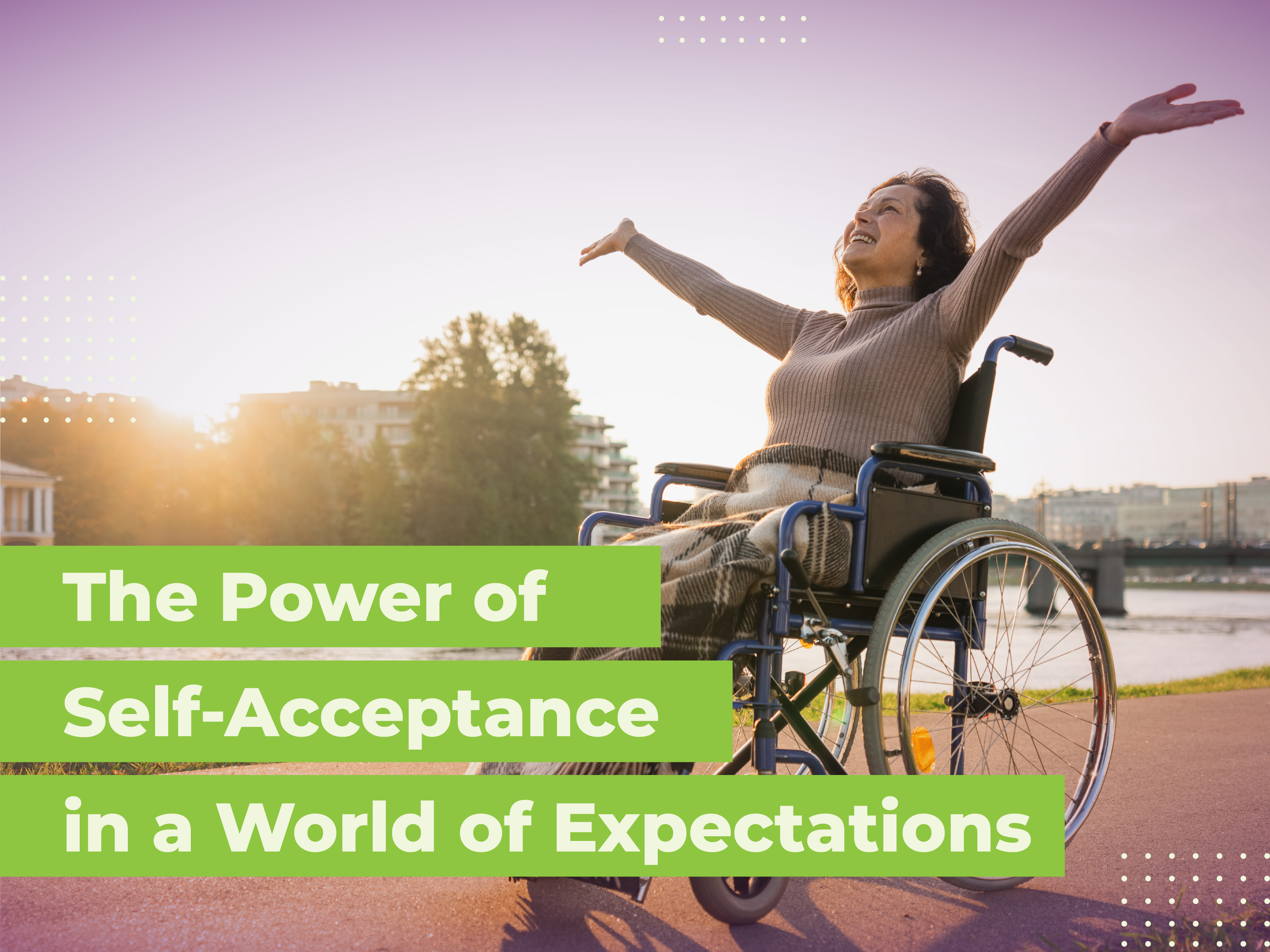The Power of Self-Acceptance in a World of Expectations

The world likes to decide what people should be. It sets standards for success, beauty, and ability as if there were one right way to exist. These messages appear early in classrooms, in workplaces, in the way help is offered or withheld. Over time, they can make people question their own worth.
For people with disabilities, this pressure can be constant. It asks for proof of capability, for explanations, for adjustment that must always be justified. Self-acceptance begins when that cycle stops. It is the moment someone chooses to trust their own experience, even when the world misunderstands it.
Looking Beyond Other People’s Measures
The first step toward self-acceptance is noticing how much of life is built on comparison. From grades to jobs to independence, people are taught to measure themselves against others. But that kind of measuring rarely tells the full story.
Each person’s reality looks different. What takes effort for one may come easily for another. What looks simple may carry unseen work. When progress is defined by personal truth, not by outside approval, it becomes something that fits the life it belongs to.
Self-acceptance starts with naming what matters to you and letting that be enough.
Allowing Room for Every Feeling
Acceptance is not about liking everything that happens. It is about giving space to the full range of experience. Frustration, pride, confusion, confidence, they all sit together.
Too often, people are expected to appear positive, strong, or inspiring. That kind of performance hides real emotion and makes healing harder. When someone allows themselves to feel without editing, they begin to live with more honesty and less pressure.
Making Environments Reflect Respect
Self-acceptance becomes easier when surroundings offer dignity. A workplace that provides access without waiting to be asked. A classroom that includes multiple ways to learn. A community that listens before deciding what support should look like.
These changes may seem small, but they carry weight. They tell a person that their way of being is already valid. Environments that hold respect help people hold it for themselves.
Living at Your Own Pace
The world celebrates speed and constant progress. But life rarely moves in straight lines. For many, growth happens in persistence, in routine, in the ability to keep showing up.
Self-acceptance means recognising that your pace is part of your story. It allows work, rest, and learning to share space. It turns the focus away from catching up and toward living fully within your own rhythm.
A Life That Belongs to You
To accept yourself is to stop asking for permission to exist as you are. It is a practice, not a conclusion. Some days it feels easy. Other days it needs to be rebuilt.
Each time a person honours their own way of living, they make space for others to do the same. That is the power of self-acceptance.
.svg)
.jpg)
